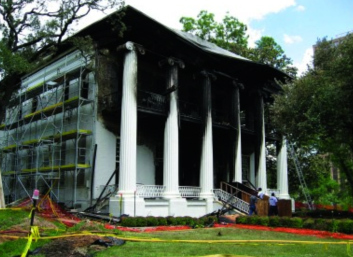Grover's Tub: " Failed Government: How DPS Got in Grover’s Tub"
December 3, 2009
The headline in the San Antonio Express-News on July 13, 2008 read: “Troopers say they are just fatigued.” It was a telling story among a series of stories showing that the Texas Department of Public Safety (DPS) is in trouble.
In the story, troopers described an agency suffering an officer shortage and beset with grueling working conditions, many officers routinely working six or seven straight days and sometimes 10 or 11.
Written by Senator Eliot Shapleigh, www.groverstub.com

The headline in the San Antonio Express-News on July 13, 2008 read: “Troopers say they are just fatigued.” It was a telling story among a series of stories showing that the Texas Department of Public Safety (DPS) is in trouble.
In the story, troopers described an agency suffering an officer shortage and beset with grueling working conditions, many officers routinely working six or seven straight days and sometimes 10 or 11.
Weeks before, numerous news accounts had detailed the now-infamous arson fire at the Governor’s Mansion, where a lone DPS officer was left guard on a weekend, and a scathing Sunset Commission Report citing multiple deficiencies at the agency—many the direct result of irresponsible underfunding.
The Governor’s Mansion
Reports on the fire found DPS failed in every aspect of security-number of personnel, level of training, equipment. At DPS, trooper base pay starts at $38,000 compared with $49,000 for an Austin police officer.
DPS was at least 250 officers short at the time of the fire; and with a number of officers soon retiring, that number could reach 600 over the next three years. With DPS officers getting paid significantly less than Border Patrol or other competing law enforcement organizations throughout the state and positions in the private sector, even that number could grow.
Does this sound familiar?
In agency after agency in Texas we hear stories of crisis: Children Protective Services (CPS), the Texas Youth Commission (TYC), the Texas Department of Transportation (TxDOT), the Texas Health and Human Services Commission (HHSC) and others.
Each one is an example of failed government—which is Grover Norquist’s definition of “success.” Norquist is known for his infamous quote, “My goal is to cut government in half in twenty-five years…to get it down to the size where we can drown it in the bathtub.”
Let’s recall some history. After the 2003 legislative session, when Rick Perry ordered massive budget cuts that carved 800,000 Texas children out of health care, Grover Norquist traveled with Perry to the Bahamas. The “policy” trip included private school voucher advocate James Leininger and Texas Public Policy CEO Brooke Rollins.
Now, a few months after the fire at the Governor’s Mansion, DPS is in Grover’s tub.
In February 2009, the State Preservation Board told the Senate Finance Committee that fixing the mansion would cost $27 million. Compare that to the much smaller $3 million price tag for security upgrades that could have prevented the fire in the first place.
Today, the people of Texas expect a government that works. The DPS plays an important role in keeping our highways safe, keeping our vehicles safe, protecting Texas’ history—and increasingly, assisting in the war on terror in a post-9/11 world.
And along the border, including the district I represent, DPS will play an increasingly vital role in fighting violent international criminal drug cartels. In 2008, more than 1,600 people have been murdered in our sister-city, Juarez — more than the total number of murders in Mexico City and that of most major United States cities last year.
And months after a coordinated DPS-lead border strategy was promised, none has been produced. Instead, to pander to extremists, Rick Perry spent $2 million on a BlueServo Web site that calls volunteers to go on virtual immigrant hunts. That strategy has led to less than ten arrests and earned Texas ridicule on national television.
To succeed against these challenges, Texas law enforcement must have the will to fight, to identify who we can work with, and to stay the course. We will need to turn the 74-year-old agency into an effective, targeted 21st Century DPS team aimed at arresting key cartel operatives, forfeiting cartel assets, and disrupting corridor movement of cocaine, heroin, and marijuana, all in coordination with local and Federal law enforcement.
Today, only after a top-to-bottom review of the agency and after multiple allegations of inefficiency and minor scandals, has DPS begun to reorganize its ranks, review decades-old policies and implement stricter recruiting and training policies. Further changes to DPS by the legislature this year create an office of Inspector General within DPS to prevent criminal activity within the agency. With $26 million from private donations and the Legislature, the Governor’s Mansion will get fixed.
Still, more work needs to be done. Stakes are too high with violent cartels to let DPS stay in Grover’s Tub. Even after session, base pay at DPS is 5.1 percent below starting salary for an Austin cop—and between 6.7 percent and 19 percent below that of a starting Border Patrol officer. Now it’s time to fix DPS, pay for quality and protect the public—not pander any more.
![]()
![]()
Related Stories
